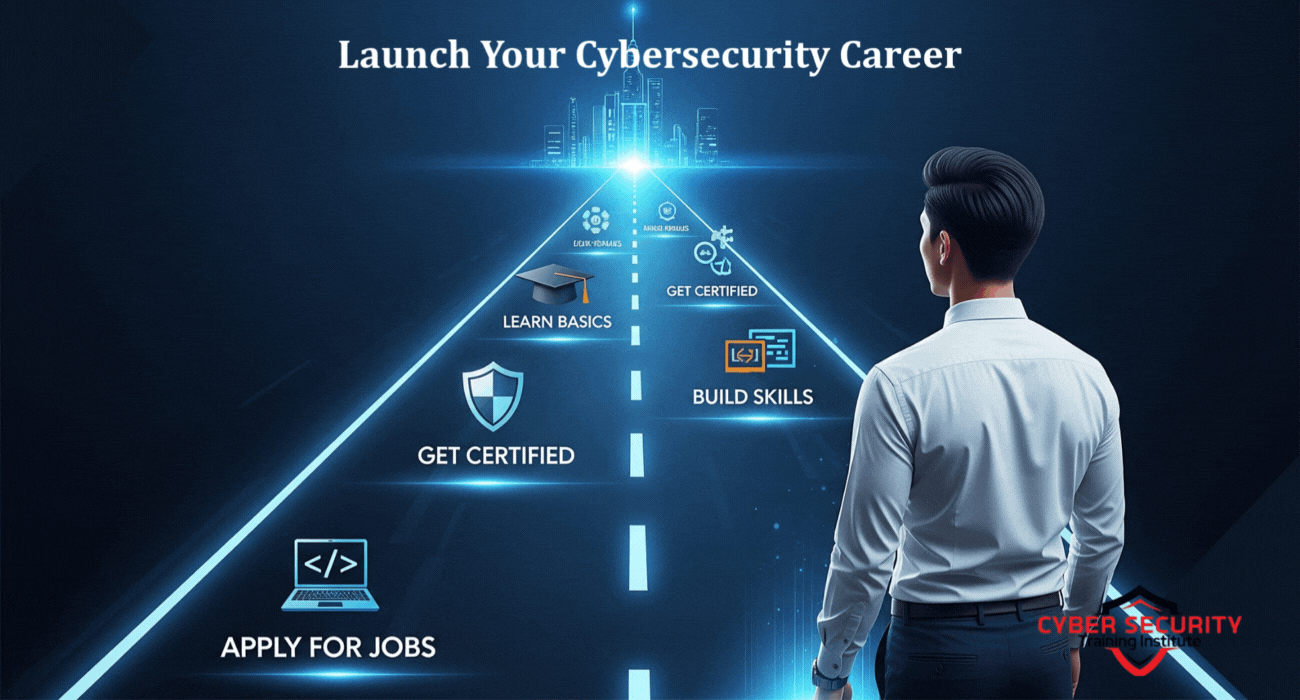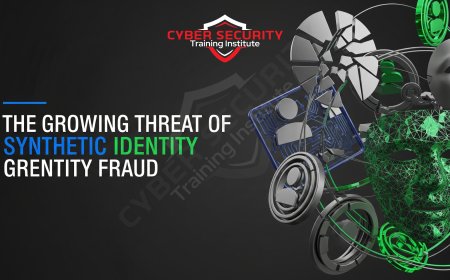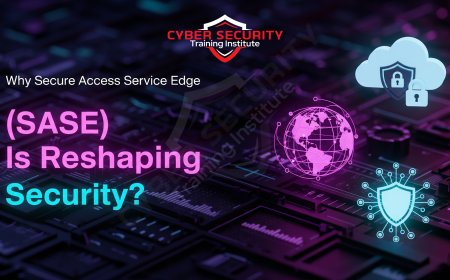How to Start a Career in Cybersecurity | Step-by-Step Guide
Cybersecurity is one of the most exciting and in-demand fields today. With businesses, governments, and individuals relying heavily on digital systems, the need to protect sensitive information from cyber threats has never been greater. If you’re curious about starting a career in cybersecurity but don’t know where to begin, you’re in the right place. This guide will walk you through the steps to launch a rewarding career in this dynamic industry, even if you’re starting from scratch. From understanding the basics to landing your first job, we’ll cover it all in a way that’s easy to follow and inspiring for beginners

Table of Contents
- Why Choose a Career in Cybersecurity?
- Understanding the Cybersecurity Field
- Essential Skills for Cybersecurity
- Education and Certifications
- Popular Cybersecurity Career Paths
- Step-by-Step Guide to Start Your Career
- Finding Your First Cybersecurity Job
- Challenges and How to Overcome Them
- Conclusion
- Frequently Asked Questions
Why Choose a Career in Cybersecurity?
Cybersecurity offers a unique blend of challenge, impact, and opportunity. As cyber threats like hacking, ransomware, and data breaches become more sophisticated, organizations are investing heavily in protecting their systems. This demand translates into high-paying jobs, diverse roles, and the chance to make a real difference. Whether you’re passionate about solving puzzles, protecting people, or working with cutting-edge technology, cybersecurity has something for you. Plus, it’s a field where you can grow continuously, as new threats and tools keep the work fresh and engaging.
Understanding the Cybersecurity Field
Cybersecurity is about protecting computer systems, networks, and data from unauthorized access or damage. It’s a broad field that includes roles like securing networks, analyzing threats, and responding to incidents. To get a sense of the landscape, think of cybersecurity as a digital defense system. Professionals in this field work to prevent attacks, detect intrusions, and recover from breaches. It’s not just about technical skills—problem-solving, communication, and staying calm under pressure are equally important.
Essential Skills for Cybersecurity
To succeed in cybersecurity, you’ll need a mix of technical and soft skills. Here’s a breakdown:
- Technical Skills: Understanding networks, operating systems (like Windows and Linux), and basic programming (Python or JavaScript) is key. Knowledge of firewalls, encryption, and threat detection tools is also valuable.
- Analytical Skills: You’ll need to think like a hacker to spot vulnerabilities and analyze threats.
- Communication: Explaining complex issues to non-technical colleagues or writing clear reports is essential.
- Problem-Solving: Cybersecurity is like a puzzle—finding creative solutions to new challenges is part of the job.
- Attention to Detail: Small oversights can lead to big security gaps, so precision matters.
Education and Certifications
While a degree in computer science or IT can help, it’s not always required. Many cybersecurity professionals are self-taught or transition from other fields. Certifications are a great way to build credibility and skills. Here’s a table of popular certifications to consider:
| Certification | Level | Focus Area | Cost (Approx.) |
|---|---|---|---|
| CompTIA Security+ | Beginner | General cybersecurity | $400 |
| Certified Ethical Hacker (CEH) | Intermediate | Penetration testing | $1,200 |
| CISSP | Advanced | Security management | $750 |
| CompTIA CySA+ | Intermediate | Threat analysis | $400 |
Start with beginner-friendly certifications like Security+ and progress to advanced ones as you gain experience.
Popular Cybersecurity Career Paths
Cybersecurity offers diverse roles depending on your interests. Some common paths include:
- Security Analyst: Monitors networks for threats and investigates incidents.
- Penetration Tester: Simulates cyberattacks to find system weaknesses.
- Incident Responder: Handles breaches and minimizes damage.
- Security Engineer: Designs and implements security systems.
- Cryptographer: Develops encryption methods to protect data.
Step-by-Step Guide to Start Your Career
Ready to dive in? Follow these steps to build a cybersecurity career:
- Learn the Basics: Start with IT fundamentals like networking, operating systems, and how data moves across systems. Online platforms like Coursera, Udemy, or free resources like Cybrary are great starting points.
- Build Technical Skills: Get hands-on with tools like Wireshark (for network analysis) or Kali Linux (for ethical hacking). Set up a home lab using virtual machines to practice safely.
- Earn a Certification: Begin with CompTIA Security+ or Network+. These are widely recognized and don’t require prior experience.
- Gain Practical Experience: Participate in Capture The Flag (CTF) challenges or volunteer for open-source security projects. Platforms like TryHackMe or Hack The Box are excellent for hands-on learning.
- Network with Professionals: Join cybersecurity communities on platforms like Reddit, Discord, or LinkedIn. Attend conferences like DEF CON or local meetups to connect with others in the field.
- Apply for Entry-Level Roles: Look for positions like IT support, junior security analyst, or helpdesk roles to get your foot in the door.
- Keep Learning: Cybersecurity evolves quickly. Stay updated with blogs, podcasts, and new certifications to remain competitive.
Finding Your First Cybersecurity Job
Landing your first job can feel daunting, but with the right approach, it’s achievable. Tailor your resume to highlight relevant skills and certifications. Use job boards like LinkedIn, Indeed, or specialized platforms like CyberSecJobs. Prepare for interviews by practicing common questions like “How would you handle a data breach?” or “What’s the difference between a firewall and an intrusion detection system?” Show enthusiasm and a willingness to learn—employers value passion as much as technical know-how.
Challenges and How to Overcome Them
Starting in cybersecurity isn’t without hurdles. You might face:
- Lack of Experience: Overcome this by building a portfolio through CTFs, personal projects, or internships.
- Information Overload: Focus on one skill at a time, like networking or scripting, to avoid feeling overwhelmed.
- Keeping Up with Trends: Follow trusted sources like Krebs on Security or Dark Reading to stay informed.
- Imposter Syndrome: Remember that everyone starts somewhere. Connect with mentors or peers for support.
Conclusion
Starting a career in cybersecurity is an exciting journey that combines technical skills, problem-solving, and a passion for protecting others. By learning the basics, earning certifications, gaining hands-on experience, and networking, you can break into this rewarding field. The path may have challenges, but with persistence and a willingness to learn, you’ll be well on your way to a fulfilling career. Cybersecurity isn’t just a job—it’s a chance to make a difference in a digital world. Take the first step today, and you’ll be amazed at how far you can go.
Frequently Asked Questions
What is cybersecurity?
Cybersecurity is the practice of protecting systems, networks, and data from unauthorized access, attacks, or damage.
Do I need a degree to start a career in cybersecurity?
No, a degree isn’t always required. Certifications, self-study, and hands-on experience can be enough to get started.
What’s the best certification for beginners?
CompTIA Security+ is widely recommended for beginners due to its broad coverage and accessibility.
How long does it take to become a cybersecurity professional?
It varies, but with dedicated study, you can land an entry-level role in 6 months to 2 years.
Can I learn cybersecurity on my own?
Yes, many professionals are self-taught using online resources, labs, and certifications.
What’s the difference between ethical hacking and cybersecurity?
Ethical hacking is a subset of cybersecurity, focusing on testing systems for vulnerabilities, while cybersecurity covers a broader range of protective measures.
Is coding required for cybersecurity?
Coding is helpful but not always required. Basic scripting (e.g., Python) can enhance your skills.
What tools do cybersecurity professionals use?
Common tools include Wireshark, Metasploit, Nessus, and Kali Linux, depending on the role.
How much can I earn in cybersecurity?
Salaries vary, but entry-level roles often start at $50,000–$80,000 annually, with experienced professionals earning $100,000+.
What’s a good starting point for learning cybersecurity?
Start with IT basics like networking and operating systems, then explore platforms like TryHackMe.
Are there cybersecurity jobs for beginners?
Yes, roles like IT support or junior security analyst are great entry points.
How do I stay updated in cybersecurity?
Follow blogs, podcasts, and news sources like Krebs on Security or attend industry conferences.
What’s a Capture The Flag (CTF) challenge?
A CTF is a competition where participants solve cybersecurity puzzles to gain practical skills.
Do I need to know Linux for cybersecurity?
Yes, Linux knowledge is valuable, as many security tools and servers run on Linux.
Can I transition to cybersecurity from another field?
Absolutely! Skills from IT, programming, or even non-technical fields can be transferable.
What’s the role of a security analyst?
A security analyst monitors networks, investigates threats, and helps prevent cyberattacks.
Is cybersecurity a stressful job?
It can be, especially during incidents, but good time management and teamwork reduce stress.
How do I prepare for a cybersecurity interview?
Practice common technical and behavioral questions, and highlight your certifications and projects.
What’s the difference between a firewall and an antivirus?
A firewall controls network traffic, while an antivirus detects and removes malicious software.
Can I work remotely in cybersecurity?
Yes, many cybersecurity roles offer remote or hybrid work options.
What's Your Reaction?
 Like
0
Like
0
 Dislike
0
Dislike
0
 Love
0
Love
0
 Funny
0
Funny
0
 Angry
0
Angry
0
 Sad
0
Sad
0
 Wow
0
Wow
0










![How to Install RHEL 10 on VMware/VirtualBox [Tutorial]](https://www.cybersecurityinstitute.in/blog/uploads/images/202509/image_430x256_68b56dc967a4a.jpg)





